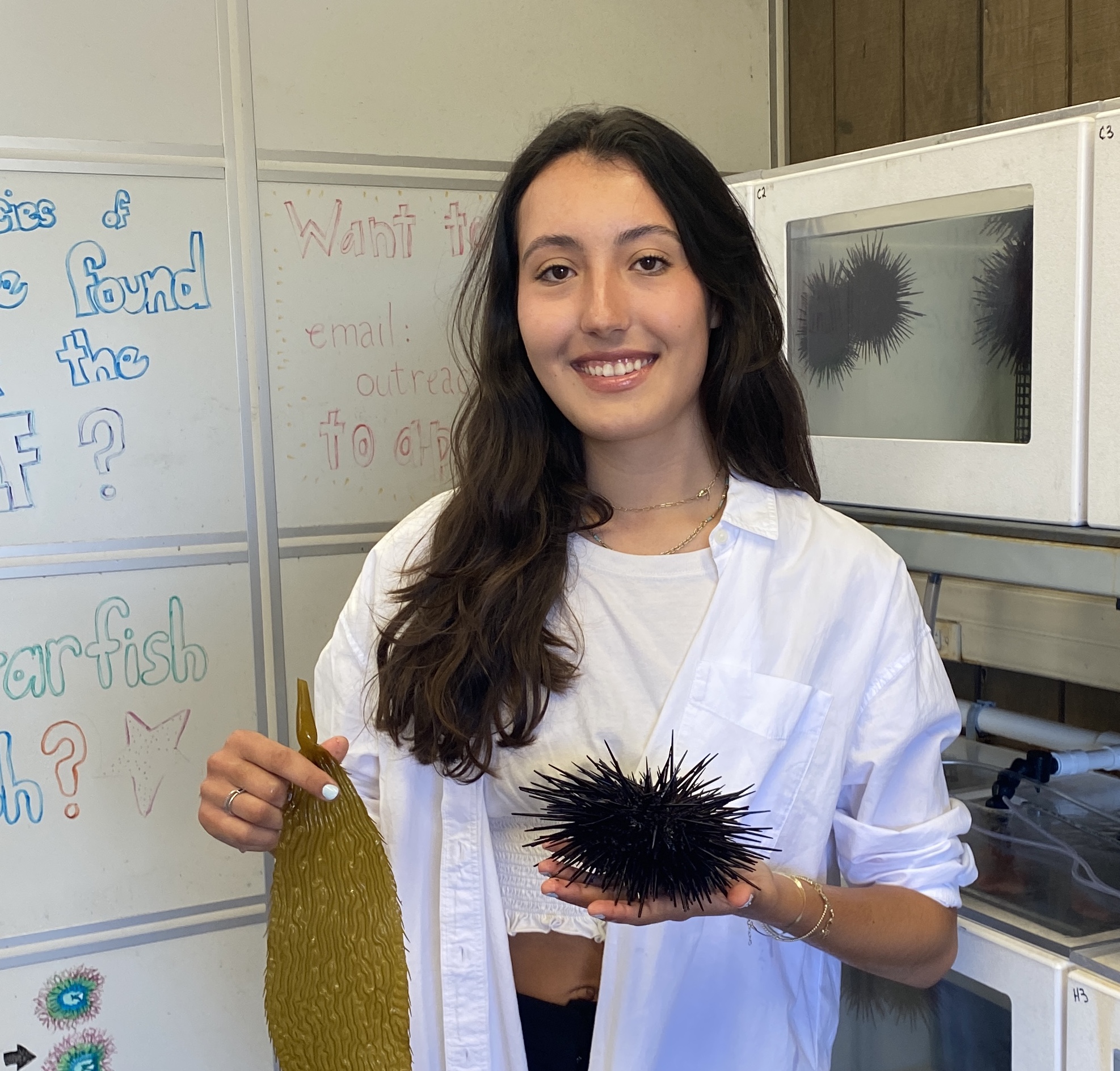
Marine heatwaves (MHWs) are periods of unusually high seawater temperatures that are increasing in frequency, duration, and intensity over time. These warm water events can disturb an organism’s growth, reproduction, behavior, and survival due to their thermal sensitivity. The red sea urchin (Mesocentrotus franciscanus) may be affected by MHWs since previous extreme warming events have coincided with urchin mass mortality events due to diseases and food shortages. Notably, the red sea urchin is a kelp forest ecosystem engineer and a multi-million dollar fishery species for their gonads, known as uni. Macrocystis pyrifera, giant kelp, is the urchins’ preferred food source and diminishing biomass of giant kelp from MHWs could be detrimental to the urchins’ gonad growth. Here, to observe how MHWs will affect urchin gonad quality and grazing rates, urchin feeding trials were conducted with giant kelp utilizing nonMHW (15°C) and MHW (18°C) flow-through seawater systems. 10 urchins were in each temperature treatment and monitored with a constant temperature logger. Both temperature treatments experienced a low-kelp mass and high-kelp mass feeding regimens to mimic the differing amounts of kelp abundance in the wild for six weeks. The control group consisted of kelp to determine the amount of natural kelp degradation. At the end of the feeding trials, the urchins’ gonads were assessed by weight and color grade across each treatment. Color quality was determined through color cards that analyze the uni color values through photography. The results may indicate that kelp biomass may be a more important factor on urchins’ gonads compared to MHWs. This project’s findings will provide an understanding of MHWs’ effect on urchin grazing rates, gonad quality, and the quality of the red sea urchin fishery, advising fisheries about the potential changes they may see in the face of future MHWs.